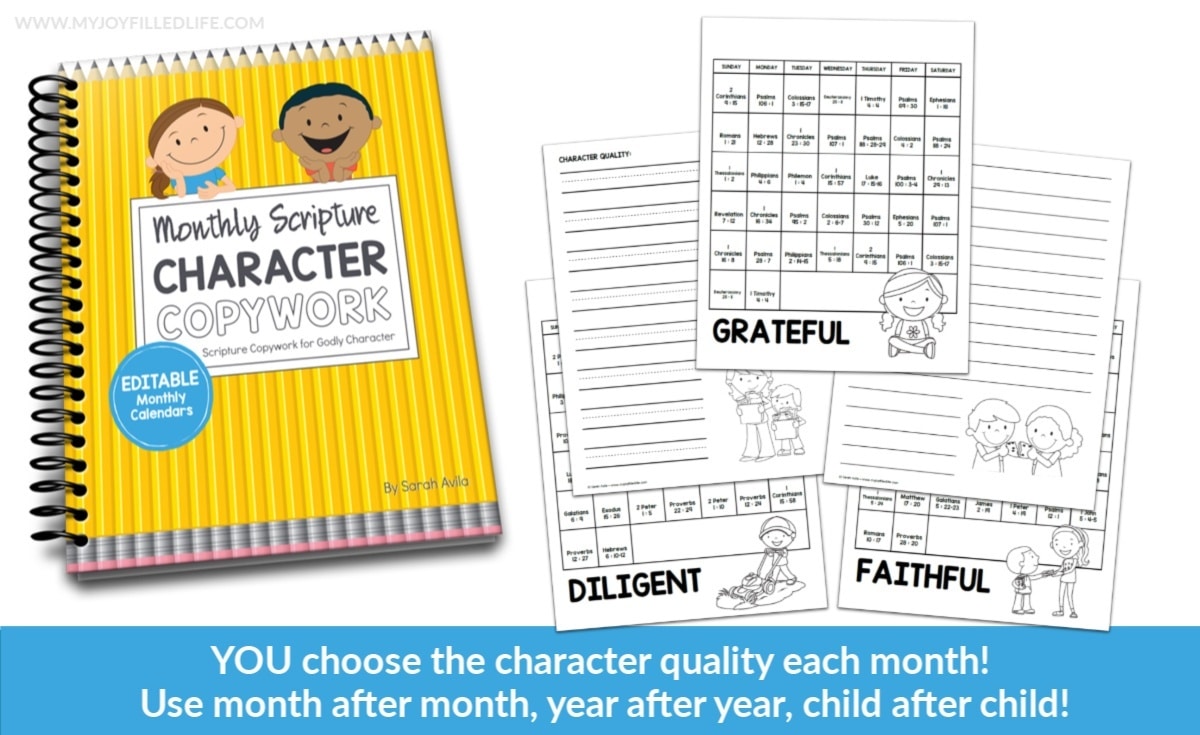Do you wage battle with your children to get schoolwork done? Do you feel discouraged, perhaps even convinced, that you are setting your kids up to fail in life? For the frustrated home educator and parent, here are three approaches to dealing with uncooperative children and rethinking education.
Is your child tearing up at math time?
Or perhaps he acts as if the mere sight of a spelling book gives him an allergic reaction?
Or maybe you repeatedly tell your daughter to get started already, to open her books, but she doesn’t, and at the end of the day, you don’t feel like you are getting through to her?
It’s scary. When you take on the responsibility of educating your own children, you feel responsible for their negative attitude as well.
You don’t want to crush their natural love of learning, but hey, you also need to make sure they know how to read and multiply, spell ‘aesthetics’ and point to Iraq on a map. And let’s not forget about picking up the life skills like hard work, critical thinking, and good communication.
What am I doing wrong, you wonder? What should I say? How should I say it?
Surprise!
You can’t solve the problem by finding more and better ways of telling your kids what to do!
Everybody’s Behavior Makes Sense to Them
Be careful that victories do not carry the seeds of future defeats.
Ralph W. Stockman
Explore the reasons why your child balks at schoolwork. There might be far more going on than the perennial catch-all reprimand of a “bad attitude.”
First of all, is it a motivational problem (won’t do) or a skill problem (can’t do)?
I’m going to assume here that you have already considered possible medical issues (like visual problems) and learning challenges (like dyslexia).
START WITH THESE QUESTIONS:
- What do your kids think of their curriculum? Is it a bad fit?
- Do they have a problem with a particular subject? Can you integrate their problem subject into their favorite subjects?
- Are they bored? Can you take it up a notch? Offer more challenges? Or find a tutor?
- Are they overwhelmed with some other, non-school-related problems? Do they want to talk about it or need help finding a better way to deal with what’s overwhelming them?
- Do they have difficulty focusing? Can you research and teach them some useful concentration strategies?
Whatever the case, try to empathize with whatever your child tells you, not only because open communication is a foundation of any positive relationship, but because you want to change your child’s attitude without losing their heart or their trust. As a parent, you can force your child to sit down and get the work done, but it will only compound the problem. You will win this one battle but only reinforce a negative association with schoolwork, the very thing you want to avoid.
Always keep in mind that you and your child are on the same side.
You certainly don’t have to agree with everything your child says (“So, I decided I hate math, and I don’t want to do it ever again!”), but you do have to try to understand their point of view (“I understand where you’re coming from. Let’s discuss it more.”). To receive their words unconditionally, you have to put your own needs, wants, and opinions aside. Just listen without judgment. Then, later, go ahead and research better ways to learn math.
Sometimes, a seemingly inexplicable behavior has a very logical explanation, and even very big problems have easy solutions.
One of my kids once went through a stage of spreading his 1-2 hours of schoolwork over an entire day. He would start right after breakfast, but finish way after dinner with endless stop-and-goes in between. It made no sense until we figured out that he simply didn’t know how to focus. We took the time to learn the necessary skills, and the problem was solved.
What Is an Education?
I have never let my schooling interfere with my education.
Mark Twain
Do you have a very specific idea about how your school day should go? Do you have preconceived ideas about what learning is supposed to look like?
Even though the word “school” has become equated with the word “education,” they’re not the same thing. Schooling is the transference of a particular skill or activity (like literacy or mathematics), while education, on the other hand, is the process of learning that spans many diverse areas and the entirety of one’s life.
Perhaps your child doesn’t want to do math worksheets but instead sits on the floor playing with LEGOs for eight hours (like one of my children). It might look like playing to you, but scientists tell us that children learn best when they play. This very same child looked at me funny when I started explaining multiplication tables to him. You do realize I love LEGOs, he said. Yes…, I replied, confused. Well, he explained, I already understand multiplication. If I take a 2×2 brick, I know it has four studs. Duh!
Do not confine your children to your own learning, for they were born in another time.
Proverb
As the rate of change in our society accelerates, the world our children will inherit will be different from today. As our children will be looking for work, love, and meaning decades from now, how can we know what will be the most beneficial for them? In truth, they are the ones who will need to think quickly, make good judgments, adapt, and learn what they need to learn to be successful.
As Carl Rogers pointed out, “The only person who is educated is the one who has learned how to learn.”
Now ask yourself, what kind of learning is your priority?
Do you want your kids to be very well schooled in a particular subject (like algebra or science), or do you want your kids to have a sharp mind, passionate interests, and know how to learn?
When we get down to it, the most useful thing you can do for your children is to teach them mental flexibility, learning strategies, emotional balance, and how to take care of themselves.
Inspired Learning
What we learn with pleasure we never forget.
Alfred Mercier
Wouldn’t it be wonderful if you knew that your children could produce enough focus, motivation, and persistence to learn anything and achieve their dreams?
They can!
With the right mental tools and the habits of minds, anyone can learn almost anything. Here are five tips:
- Using the current research from neuroscience, start by teaching your children how their brains learn so that they can use their most important organ efficiently. The brain learns best when the material is challenging, when students make mistakes, and when they understand that effort is what makes their minds stronger and more capable.
- Learning can be fun, but it’s not always. So, introduce your children to Grandma’s law (known in science as the Premack principle): If you eat your vegetables, you can have a dessert. It means training the mind to do what needs to be done before getting to the juicy stuff. Multiplication tables before dinosaur documentaries on YouTube. Tea time with homemade cookies after the chores are done. It develops the discipline that is critical for achieving success in life.
- Neuroscience also presents us with strong evidence for developing self-regulated learning. This refers to a set of learnable strategies that kids can use to take accountability for their education. Half of my kids were born self-regulated learners, and the other half needed to be taught some specific strategies, like understanding where and how to focus their attention, breaking bigger projects into manageable chunks, and optimizing their time.
- Your home has tremendous potential to boost your children’s motivation. What’s your own attitude towards learning? How much learning do you do in front of your children? I believe that learning anything is a pleasure, and my kids imitate that attitude. We love discovering new things together and discussing our findings. A common theme in brain research is that learning for pleasure is the most effective, so make your home learning-friendly and fun.
- Homeschooling parents need to be researchers. You never know when you will stumble upon a strategy that is perfect for your home. When I read about the information loop theory, I giggled in delight. It turns out that when we hear a question we can’t help but want to know the answer no matter how boring the material is. Too simple? Maybe. But it works!
Once you get to the bottom of the learning problem, get clear on what constitutes “education,” and introduce some inspired learning ideas, homeschooling will go a bit smoother in your home. However, each child is unique, and some things might work better than others. Experiment, listen, and persist!
Eva is a homeschooling mom of four and a curriculum writer living in Chicago. She uses her background in cognitive psychology research, yoga instructor training, and business consulting experience to design the best tools for inspired learning and living. She writes at Kid Minds, a blog that focuses on research-based strategies for raising extraordinary kids. You can also find her on Pinterest, Facebook, and Twitter.









